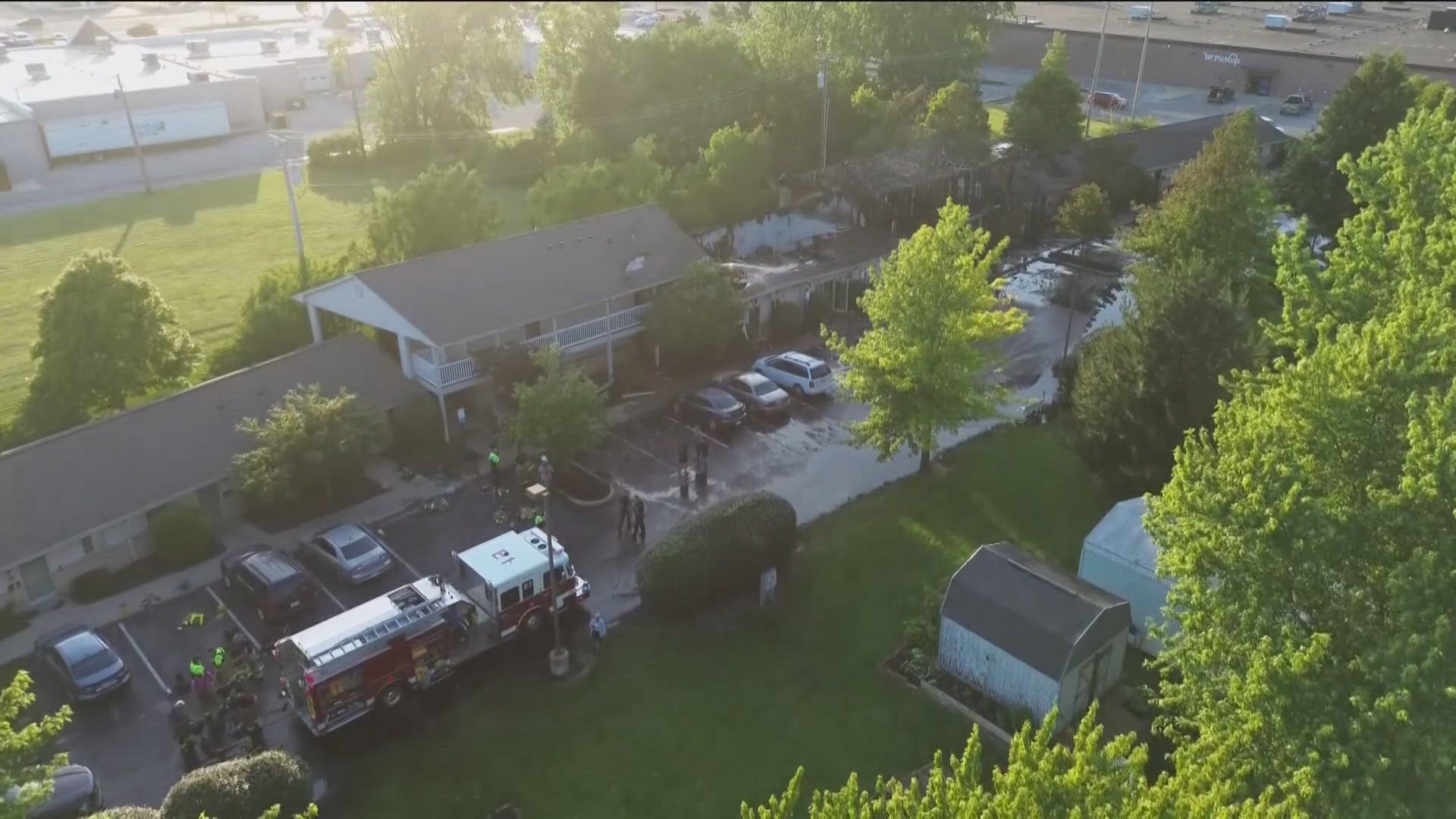TOLEDO, Ohio — It's hard to forget the day you watched your home burn.
William Douglas, Charles Hebert and Brian Ulch, three of the 17 residents of the Village Court North Apartments in Bowling Green, were all there on June 12 when they lost everything in a fire that torched the building.
"I heard somebody screaming, and just thought it was kids playing then I realized it was more serious than that," Ulch said.
"A guy had come and was pounding on my door, 'there's a fire!'" Hebert added.
Douglas said the flames looked to be eight feet tall or higher.
It has now been more than a month since they've returned home.
"I haven't felt safe since it happened. It's part of my psychosis. A little bit of change just ruins my world," Douglas said.
Douglas lived at the building in relative peace for six years. Like many others, he took advantage of the resources offered by the mental health nonprofit Harbor, which also served as the Village Court North's property manager.
Douglas said he's been diagnosed with multiple mental illnesses and is unable to complete even basic tasks.
"Ever since dad died, I don't have the mental capacity to concentrate that much to do a job all day every day. My mind kind of just meanders," he said.
That's why the apartments were perfect for him. As federally designated low-income housing, it offered him and others like him the resources they needed and low rent prices that could meet his limited workload.
"My rent was less than $200 a month," Douglas said. "You can barely find a heating bill that's less than $200 a month."
So, when the complex burned down, so too did a lifestyle he and the other residents had grown accustomed to. And with few low-income properties in Wood County, Douglas was just one of the 13 with no place to stay after the fire.
As part of a deal arranged between Harbor and Bowling Green State University, the displaced residents were temporarily moved to the university's Greek life housing.
"It was crazy. I'm almost 60 years old and I wasn't allowed to have a guest, especially after we just lost everything," Douglas said.
Their stay didn't last long, though. BGSU needed to get the dorms ready for the fall semester's incoming students, so on July 18, the residents were moved again.
"They've been playing 52-card shuffle, they just stick us where they can find a place," Douglas said.
Now, he and Hebert are staying at one of Harbor's guest houses in Bowling Green.
"When they stuck Chuck and I here, when we first walked in it reeked, because the people that were here before us were mentally handicapped and they probably weren't the cleanest of people," said Douglas.
The house has since been cleaned, but it's just one more temporary living space, and both men say they can't keep shifting around.
Hebert's sister has arranged for him to get a new apartment in Bowling Green, but both Douglas and Ulch, who is currently staying with his sister in Temperance, don't know if there is a plan for them to get a new long-term residence.
"I didn't have any luck with anything, there's possibly one out of them seven I might be able to go to, but most of them weren't subsidized or two bedrooms, things that didn't work for me," Ulch said.
"Either they don't know to relay it to me, or they've told me and I don't remember," Douglas added.
Dustin Watkins, president and CEO of Harbor, said finding new housing for tenants like Douglas and Ulch is of the highest priority. But actually finding it is difficult.
"I think in this case we're going to help first and that is our focus. We're interested in doing everything we can with our resources," Watkins said. "But there really are no easy answers for fixed and low-income tenants, and that's a distinct challenge in all of this."
"We are the test case and after this, they'll probably evaluate what they should have done better, and they will put something in place if something happens again," Hebert said.
Hebert added that he felt like a guinea pig, and that "all guinea pigs hate being guinea pigs."
Watkins said long term, Harbor plans to rebuild the Village Court North, but it could be 18 months to two years before it opens. Until then, the nonprofit is placing the residents where it can.

